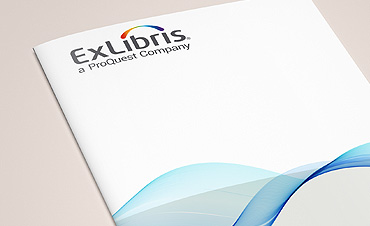June 29, 2008
The Ex Libris open-platform strategy brings the Company’s tradition of openness and community collaboration to center stage
Jerusalem, Israel — June 29, 2008. Recognizing the principles and practice of openness already embodied in the Ex Libris environment, Ex Libris Group has embarked on formalizing its strategy of developing open products. A setting in which open interfaces are readily available enables the library community to integrate Ex Libris components with other software elements more easily and to collaborate with colleagues on application development.
Ex Libris has translated its open-platform strategy into a program spanning three major areas of activity:
- Formalizing the process by which we design, implement, document, and publish our interfaces, to maintain consistency across all products and achieve comprehensiveness
- Increasing our emphasis on service-oriented architecture (SOA) principles in our future product designs, ensuring that our solutions will provide services as core building blocks for applications developed by us or by other parties
- Providing a platform that serves as a focal point for collaboration and as such, actively encourages and facilitates institutional and community initiatives to enhance our products or use them in ways we have not foreseen
In recent years, Oren Beit-Arie, chief strategy officer at Ex Libris, has taken the lead in affirming product openness as a key strategic direction and one of the company’s core values. By setting the open-platform program in motion, the Company has transformed this vision into a concrete plan. ”The open-platform strategy of Ex Libris is a different way of thinking, laying the foundation for a new business model in our industry,” explains Beit-Arie. ”While building on our core competence—the development of robust, maintainable solutions according to a long-term road map—we provide libraries with optimal tools for making these solutions the best fit for the libraries’ environment,” adds Beit-Arie.
”This is an important development at a time when open source is gaining popularity,” comments Ere Maijala, IT research specialist at the National Library of Finland and an avid developer of unique code for the Ex Libris MetaLib® metasearch solution and SFX® link resolver. ”For us to get the best out of both closed and open source development, they should exist side by side.”
Mark Dehmlow, electronic services librarian at the University of Notre Dame and developer of numerous SFX and MetaLib extensions, agrees with Maijala. “I think this is an exciting initiative. There is definitely a demand for this activity from the customer base.”
Leading the open-platform program is Tamar Sadeh, the director of marketing, who is working with the various teams at Ex Libris to instill the culture of openness from the drawing board through the documentation of the interfaces. ”We work closely with the community of library developers to make certain that their needs are well addressed and do everything in our power to facilitate collaborative projects,” explains Sadeh. ”Using our open interfaces, the library community can take the customizable, configurable out-of-the-box version of an Ex Libris solution and develop components to meet specific needs. Moreover, the benefits of the open-platform program are not limited to institutions that are actively developing extensions. The entire Ex Libris community, including libraries that do not have in-house developers or large IT departments, will gain from the contributions and input of their peers.”
To support this new strategic direction, Ex Libris has created EL Commons, a collaborative Web-based platform hosting the Developer Zone, where community members can access documentation for the open interfaces, upload software components that they have written and want to share, and download components from other community members, adapting such components to their needs.
In addition, EL Commons provides the infrastructure for a wiki that is defined and administered by the Ex Libris user groups. El Commons will undergo testing by a representative group of customers over the coming weeks, followed by a general release later this summer.
About Ex Libris:
Ex Libris is a leading provider of automation solutions for academic libraries. Offering the only comprehensive product suite for electronic, digital, and print materials, Ex Libris provides efficient, user-friendly products that serve the needs of libraries today and will enable them to transition into the future. Ex Libris maintains an impressive customer base consisting of thousands of sites in more than 70 countries on six continents.
Dedicated to developing creative solutions in close collaboration with our customers, Ex Libris enables academic, national, and research libraries to maximize productivity and efficiency and, at the same time, greatly enhance the user experience. By empowering users to discover and obtain the information they need, libraries ensure their position as the bridge to knowledge.
For additional information on Ex Libris Group, see https://exlibrisgroup.com/




